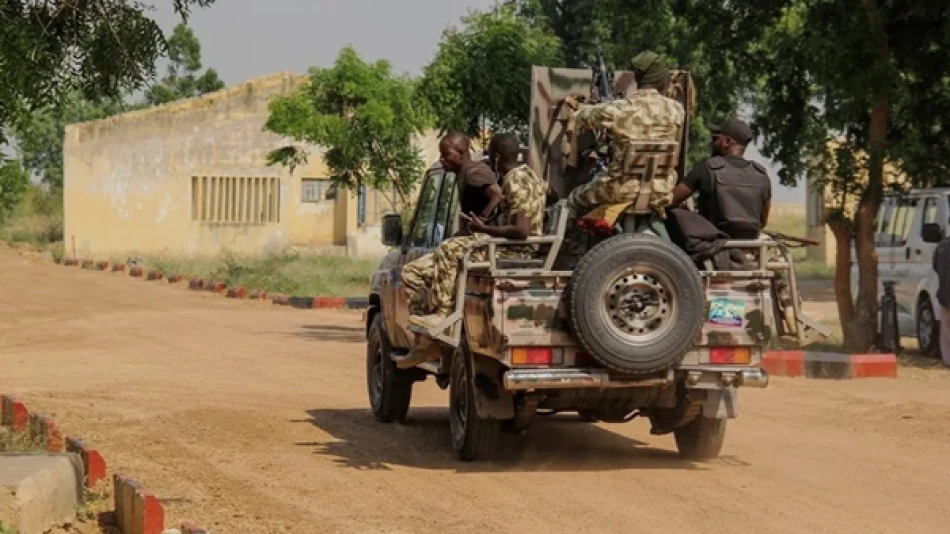
Nigerian Forces Ambush and Eliminate 8 Suspected Boko Haram Militants
Nigerian Military Strikes Back: Eight ISIS Commanders Killed in Northeast Ambush
Nigerian forces have dealt a significant blow to ISIS West Africa Province (ISWAP), killing eight militants including senior commanders during a failed ambush attempt on a critical supply route in Borno State. The operation highlights the military's increasingly aggressive counter-terrorism strategy in a region where jihadist groups have terrorized communities for over a decade.
Strategic Victory on Key Supply Line
The clash occurred near Garin Giwa on the Baga Cross Kauwa road in Borno State, a corridor that has become synonymous with militant activity designed to disrupt military operations. When ISWAP fighters attempted to ambush a military patrol in the early hours, Nigerian forces turned the tables, successfully repelling the attack and eliminating key terrorist leadership.
The location is no coincidence. Borno State sits at the epicenter of Nigeria's jihadist insurgency, where control of supply routes can determine the success or failure of both military campaigns and humanitarian aid delivery. By targeting this specific road, militants aimed to choke off military logistics—a tactic that has proven effective in other conflict zones from Afghanistan to Mali.
The Evolving Threat Landscape
From Boko Haram to ISIS Franchise
ISWAP emerged as a splinter faction of Boko Haram, aligning itself with the broader ISIS network and adopting more sophisticated operational methods. While Boko Haram focused primarily on local grievances and crude attacks, ISWAP has demonstrated greater tactical discipline and international connectivity, making it the more dangerous of the two groups.
The death of senior commanders represents more than symbolic victory. Unlike foot soldiers who can be easily replaced, experienced leaders carry institutional knowledge about supply networks, operational planning, and local intelligence—assets that take years to rebuild.
Regional Security Implications
Nigeria's northeast insurgency has created ripple effects across the Lake Chad Basin, affecting Chad, Niger, and Cameroon. The Multi-National Joint Task Force, established to coordinate regional responses, has struggled with funding and coordination challenges similar to those faced by international coalitions in the Sahel.
This latest military success could signal renewed momentum for Nigerian forces, who have faced criticism for their inability to fully neutralize the insurgency despite receiving substantial international support and training from Western allies.
The Human Cost Continues
More than a decade of violence has displaced over 2.2 million people in northeast Nigeria alone, creating one of Africa's largest humanitarian crises. The insurgency has killed thousands of civilians and security personnel while devastating local economies dependent on agriculture and trade.
The targeting of supply routes reflects a broader strategy by militant groups to create ungoverned spaces where they can operate freely. By making travel dangerous and unpredictable, they effectively expand their territorial control without holding fixed positions that military forces can easily target.
Military Strategy Under Scrutiny
Nigerian military operations have evolved from large-scale conventional tactics to more targeted counter-insurgency approaches, influenced by lessons learned from conflicts in Iraq, Syria, and the Sahel. The successful defense of this patrol suggests improved intelligence gathering and tactical readiness among Nigerian forces.
However, military victories alone cannot address the underlying conditions that fuel recruitment for groups like ISWAP and Boko Haram. Poverty, unemployment, and weak governance in northern Nigeria continue to provide fertile ground for extremist messaging, particularly among young men with limited economic opportunities.
The challenge for Nigerian authorities lies in translating tactical successes into lasting security improvements that allow displaced communities to return home and rebuild their lives. Without addressing root causes, military gains risk becoming temporary setbacks for groups that have proven remarkably resilient over the past decade.
Most Viewed News

 Layla Al Mansoori
Layla Al Mansoori






